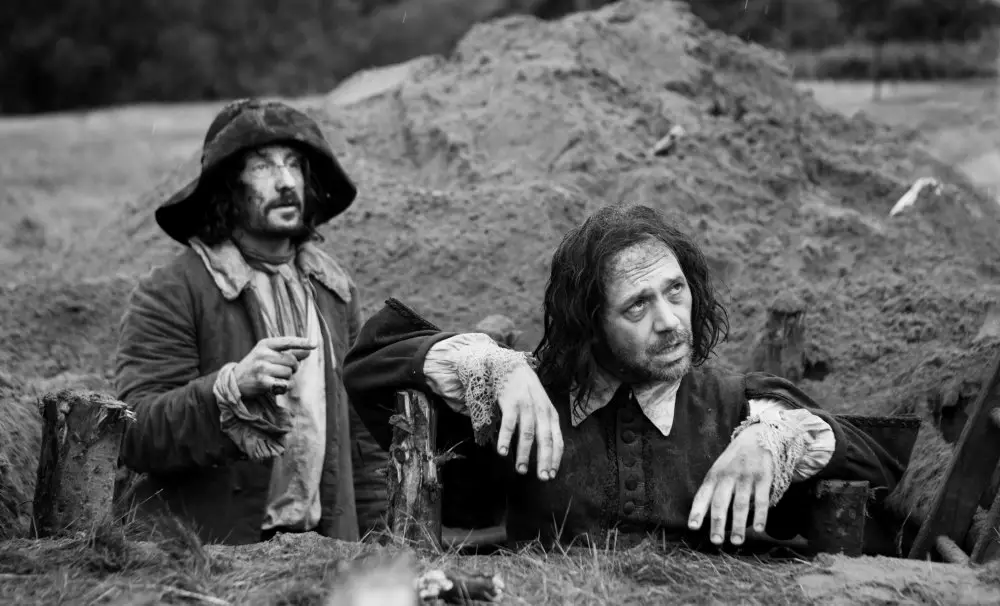Surreal yet impressively realistic, Ben Wheatley’s A Field in England introduces us to a new wave of folk horror—an exploration of the psyche and an experiment in the experimental. While the main characters hunt for a symbolic treasure, their true desire is to flee from their harsh reality and themselves. On their way, they are forced to come to terms with their true fears, remaining calm, cooperative, and ready for any potential attack, caught in this psychedelic survival mental game that just doesn’t seem to end.
During a battle of the English Civil War, a group of deserters who have just escaped stand together in pursuit of peace and an alleged treasure hidden in a nearby field. Coward Whitehead, manipulative Cutler, loyal Jacob, and wise Friend wander in the middle of nowhere, trying have dealt with before.


After three feature films, Kill List director Ben Wheatley decided to delve further into a genre he had previously explored. In 2013, A Field in England premiered at the 48th Karlovy Vary International Film Festival, where it won the Special Jury Prize. Despite its accolades, this British experimental horror masterpiece never quite received the attention it deserved.
‘Flirting’ with folk horror, as it’s set in rural England, A Field in England cannot be entirely categorized within this classification. Although there are no witches or witch hunters, there is something chillingly devilish about this movie. It possesses an eerie quality that awakens buried emotions, a feat that very few modern horrors are able to achieve. Despite being a decade old now, the film still feels fresh from a contemporary perspective, where the war serves as plain symbolism.
It stands as a mesmerizing piece, a visionary and hypnotic film characterized by modesty and simplicity—virtues that many creators in our days often lack or simply forget along the way. Nothing extreme or unnecessary, A Field in England is literary and visually flawless. It utilizes its characters as bait to explore the existence or absence of God. However, as time passes, the absence of God appears to be the main theme of this existential journey. While some may find it filled with symbols, the director doesn’t seem to aim for complexity in its meaning. Instead, the film remains open to interpretation by the audience.

Ben Wheatley started his career with shorts and animation before transitioning to feature films. Regardless of the genre, Wheatley rarely abandons his black humor, a trait that has become synonymous with his directing style. With ten features under his belt, Wheatley’s unique approach keeps our anticipation high for his next project. While Ben Wheatley is frequently linked with Kill List, A Field in England, promises more than mere fright—it offers a deeper exploration. Wheatley’s intention was never just to deliver hollow scares. Whatever the case might be, Wheatley’s fourth feature deserves more attention than it garners, perhaps even inspiring viewers to revisit it for a second or third ‘reading’ after the initial viewing.
Post Views: 3


